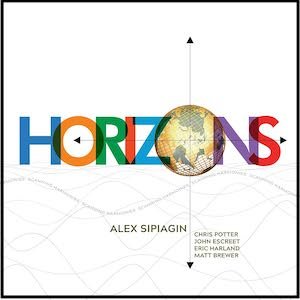Label: Cuneiform Records, 2024
Personnel - Tomeka Reid: cello; Mary Halvorson: guitar; Jason Roebke; bass; Tomas Fujiwara: drums.
American cellist and composer Tomeka Reid has been a vital force in the creative jazz scene, playing in groups led by flautist Nicole Mitchell, pianist Myra Milford, and multi-reedist Roscoe Mitchell, while also leading her own acclaimed quartet. This ensemble, featuring guitarist Mary Halvorson, bassist Jason Roebke, and drummer Tomas Fujiwara, shines brightly in 3+3, Reid’s sublime third outing with the group, comprising pieces that delve into extended forms, blending notated passages with ample space for free improvisation. From the opening notes to the final moments, the chemistry among these exceptional musicians is palpable.
“Turning Inward / Sometimes You Just Have to Run With it” begins as an open exploration, leading to touching chamber moments where Reid’s cello and Roebke’s bowed bass resonate in melodic consonance. Cymbal splashes anchor the bottom line, with Halvorson’s guitar texturing the top. Reid and Halvorson work in tandem, laying down well-delineated figures and phrases that build into solos over cyclic progressions made groovy by Roebke and Fujiwara. Halvorson excels at giving harmonic direction, sounding more bluesy and melodic than usual, while Roebke’s every single move feels like pure groove — his playing and sound are a true delight.
“Sauntering with Mr. Brown” is propelled by an off-kilter pace, showcasing staccato prowess and developing into a rock-flavored narrative, with Fujiwara adding even more steam to the mix. On occasion, one can experience a full-fledge experimentalism but there are also signs of tradition and counterbalanced collective interplay. “Exploring Outward / Funambulist Forever” encapsulates this blend, starting in a free fashion with well-measured actions by each member before Halvorson’s blend of electronic sounds and angular phrasing takes center stage. Afterward, she slowly toggles between two chords, enhancing chromatic movement in a more introspective passage. The piece then transitions effortlessly into a swinging section, with a call-and-response interplay between Reid and Halvorson that injects the music with kinetic energy.
Undoubtedly Reid’s finest album to date, 3+3 will stand the test of time. It’s one of the year’s best albums and a testament to Reid’s extraordinary artistry.
Favorite Tracks:
01 - Turning Inward / Sometimes You Just Have to Run With it ► 02 - Sauntering With Mr. Brown ► 03 - Exploring Outward / Funambulist Forever








































